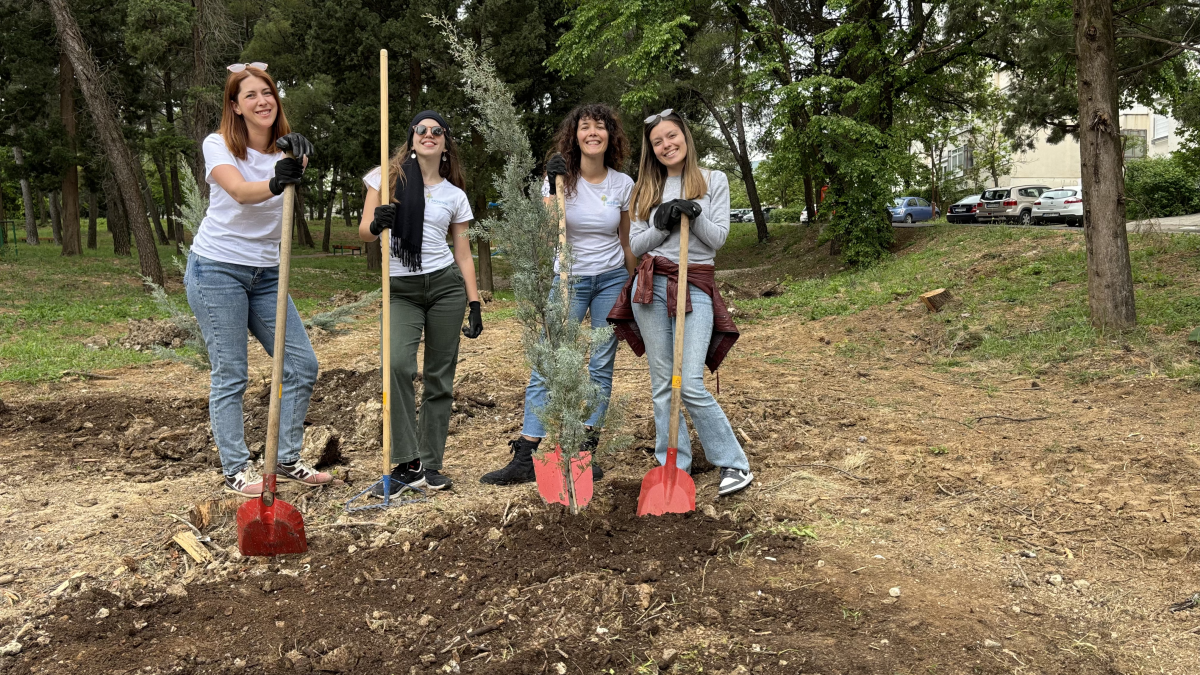Ever feel like the world's problems are as complex as quantum physics? Us too. Especially when it comes to tackling climate change. There’s so much to be done. But what if the solution isn't rocket science? What if it's as simple as a shift in the way we work?

Here at People in Need, nestled in the heart of Bosnia & Herzegovina, we've pondered this question endlessly. Frustration over the disregard for our planet's well-being, fueled by a lack of systemic change, often left us feeling overwhelmed. But hey, instead of banging our heads against the wall, we decided to roll up our sleeves and take action.
Knowing that there must be something else we can do as an organization, other than stress over what cannot be so easily changed, we came together to brainstorm ideas on how to reduce carbon emissions and consequentially, reduce our financial expenses. We thought of areas where we think we produce the biggest amount of unnecessary carbon emissions, and we were able to think of so many things that would be applicable to our work team.
Here are five key measures that we have implemented that proved to be saving us money as well as reducing our emissions and negative impact on the environment:
Smart Valves for Gas Heating (Set to 21 degrees Celsius)
CO2 Emission Reduction: The implementation of smart valves allows precise control of gas heating, maintaining a comfortable temperature while minimizing energy consumption. Setting the temperature to 21 degrees Celsius not only ensures a warm environment but also significantly reduces CO2 emissions by optimizing energy usage.
Smart Plugs for Automatic Power Cutoff
Energy Conservation: Smart plugs play a crucial role in reducing energy wastage. By automatically cutting off power to devices overnight, the organization avoids unnecessary electricity consumption. This measure contributes to both cost savings and reduced emissions, aligning with sustainability goals.
Let's Walk the Talk - Transportation
Emission Reduction: Encouraging walking and the use of bicycles for short distances which minimizes the reliance on taxis or other fuel-consuming transportation. This not only reduces the organization's carbon emissions but also promotes a healthier and more sustainable commuting option for employees. Additionally, when travelling between the cities, we encourage the use of buses and trains, rather than personal vehicles.
Sensor Lights with Automatic Shutdown
Energy Efficiency: Implementing sensor lights that automatically turn off when not in use eliminates unnecessary energy consumption. This measure contributes to energy efficiency and cost savings, showcasing the organization's commitment to sustainable practices.
Waste Recycling Practices and Digital Documentation
Reduced Environmental Impact: Instituting a waste recycling program with dedicated bins and proper disposal methods demonstrates a commitment to the environmental cause. Additionally, transitioning to digital documentation minimizes paper usage, emphasizing a sustainable approach and reducing the ecological impacts.
These measures aren't just numbers on a spreadsheet; they're the embodiment of our values at People in Need. In just six months, we were able to trim down the use of gas by one third, as well as the use of electricity and the CO2 emissions produced with transportation means. But for those of you who understand the language of money better, trust us when we say that the financial reductions are significant.
So, are you ready to be part of something bigger than yourself? Let's embark on the journey towards sustainability, taking one step at a time. Let's take each step with purpose, knowing that every action, no matter how small, contributes to a greater good. Because when we unite for a cause, there's nothing we can't achieve. Are you in?
This text was prepared by Selma Rahimić, Grants and Green Operations Officer and Mirza Šaćiri, MEAL Coordinator in People in Need B&H.
Reach out to us if you have any questions.



